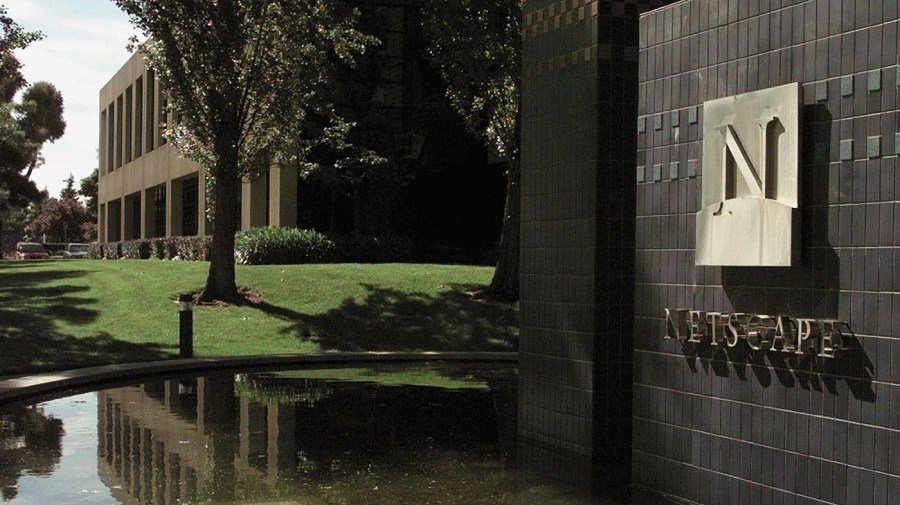
Aug. 9 marks the 30th anniversary of the internet’s Big Bang moment, an inflection point in the emergent digital world.
This Big Bang was the stunning stock market debut of Netscape Communications, maker of the first widely popular web browser, Netscape Navigator.
Netscape — a pitch-perfect name for a web pioneer — is at best a distant memory these days. But on August 9, 1995, Netscape took its shares public in an IPO that illuminated the online world, introducing the web to millions of people only vaguely familiar with the technology.
Netscape was a Silicon Valley startup whose IPO defined the audacity of the web’s early days. The company had been founded in 1994 by James H. Clark, he of Silicon Graphics fame, and Marc Andreessen, then a recent college graduate whom Newsweek magazine was soon to call the “über-super-wunder whiz kid of cyberspace.”
Although its founders were colorful, the company had been a money-loser during the months before its IPO. Its Navigator browser, however, was user-friendly and becoming a preferred gateway to the early web.
Clark, Andreessen, and Netscape’s gentlemanly chief executive, James Barksdale, went on a multicity roadshow to pitch the company to would-be investors in the weeks preceding the IPO. There was, it turned out, no scarcity of interested parties.
Five million Netscape shares were offered for sale August 9, 1995, at $28 each. Trading of the stock on the NASDAQ exchange was delayed nearly two hours because of a huge order imbalance. When Netscape did open for trading, it sold for $71 a share. By day’s end, the share price had eased to $58.25, which represented a market capitalization of more than $2 billion.
It was a stirring launch still celebrated as the “Netscape Moment.”
Netscape euphoria was a digital and cultural phenomenon that proved short-lived. The IPO caught the attention of the software giant Microsoft, which had been fairly slow to recognize the promise of the web. The IPO confirmed Netscape as a threat to its software dominance. Later in August 1995, Microsoft introduced its own web browser, Internet Explorer 1.0. The initial version was anemic, but Microsoft regularly released upgrades, eventually bringing Explorer to par, technically, with Navigator.
What came to be called the “browser wars” were joined. To win, Microsoft deployed what the federal government said were monopoly tactics by bundling Explorer with its Windows operating system. The government and several states sued, accusing Microsoft of misusing its power “to develop a choke hold on the browser software needed to access the Internet.”
Antitrust litigation came too late to save Netscape. Its once-overwhelming share of the browser market dwindled under Microsoft’s pressure. In late 1998, Netscape was acquired by AOL.com, book-ending its meteoric rise and decay as an independent company.
The digital graveyard is filled with 1990s startups and their thwarted ambitions. Alta Vista, for example, once promised high-speed search online. It was unceremoniously shut down in 2013. Why recall the abbreviated life of a flamboyant internet pioneer like Netscape? Several reasons offer themselves.
Netscape’s IPO signaled that great wealth to be made online, which helped ignite the dot-com frenzy of the late 1990s. The IPO became a standard of sorts for judging tech innovations. The other day, for example, a Reuters commentary ruminated about the “shadow” that Netscape’s IPO may cast these days over enthusiasm for artificial intelligence.
More broadly, Netscape in 1995 anticipated a period of sweeping transformation online that affected and altered nearly all aspects of life.
Netscape also deserves recognition as an impressively innovative company. Its lasting contributions include Secure Sockets Layer, an encryption tool that helped protect online transactions. A Netscape technologist named Brendan Eich developed JavaScript, a programming language that animated the web. Netscape also introduced those small packets of digital information known as cookies, stored on a user’s computer.
Netscape, moreover, was a force that contributed to a heady sense of optimism about the early web. The writer Charles Yu several years ago recalled the jauntiness of those days.
“I entered college in 1993 and graduated in 1997,” Yu wrote. “Halfway through, the Internet became a thing. Netscape said: ‘Here you go, here’s a door to a brand-new place in the existence of the universe. We just started letting people in. Go ahead, it’s fun. It’ll keep getting bigger for the rest of your life. Also, you can change stuff in it. You get to make up new rules for everything — thinking, remembering, communicating.’”
Netscape was emblematic of a promising but tentative time when, according to Pew Research Center, most Americans were “still feeling their way through cyberspace.” The web was an inviting if a bit mysterious place back then, before the advent of social media, smart phones, and myriad apps. It’s surely meaningful, then, to have at least a nodding familiarity of the days and the company that gave rise to the digital world’s Big Bang.
W. Joseph Campbell is a professor emeritus of communication at American University. He has written seven solo-authored books, including “1995: The Year the Future Began.”


